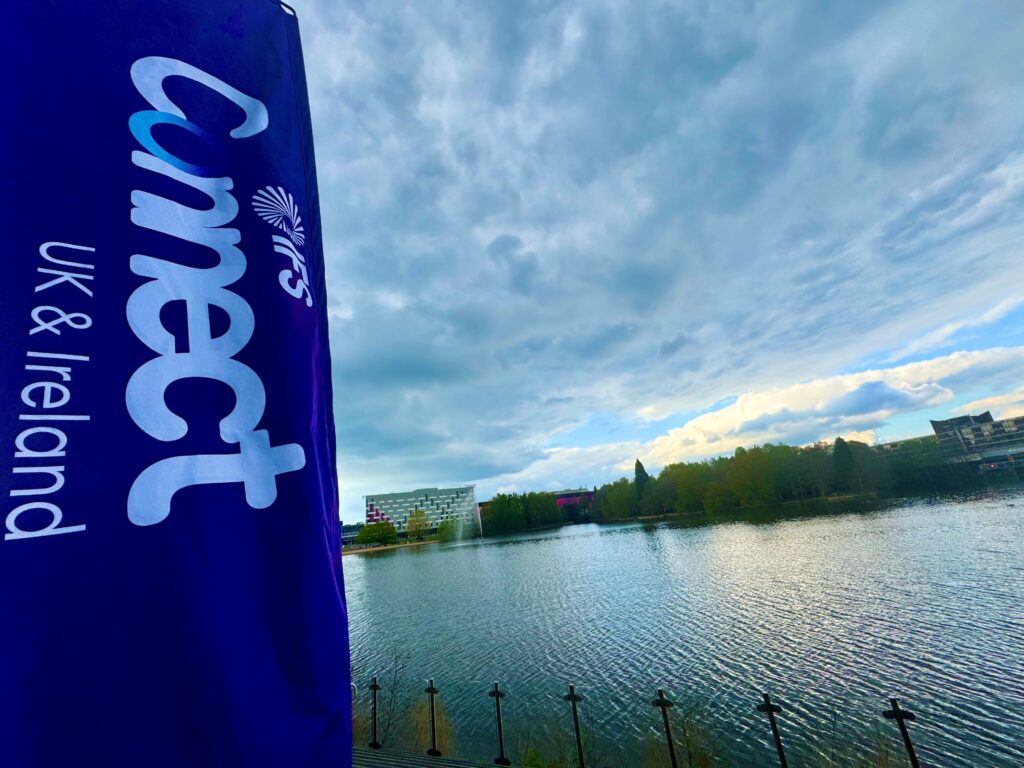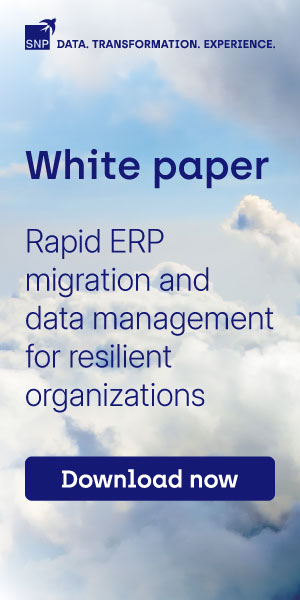 The energy sector is experiencing a seismic shift, and Tampa Electric Company (TECO) is betting big on enterprise technology to navigate it. At IFS Connect North America 2025 in Nashville, TECO’s David Lukcic delivered a masterclass in strategic transformation that likely had utility executives in the room questioning their own approach to grid modernization.
The energy sector is experiencing a seismic shift, and Tampa Electric Company (TECO) is betting big on enterprise technology to navigate it. At IFS Connect North America 2025 in Nashville, TECO’s David Lukcic delivered a masterclass in strategic transformation that likely had utility executives in the room questioning their own approach to grid modernization.
TECO finds itself at the epicenter of multiple converging forces that would make any CEO’s head spin. Customer expectations are tightening while affordability concerns mount. Data centers are demanding unprecedented levels of reliability. Electric vehicles and rooftop solar are challenging traditional grid control paradigms. Add Florida’s hurricane season to the mix, and you’ve got a recipe for what David calls “a little bit of a reactive mode.”
But here’s where TECO’s story gets interesting—and slightly terrifying for risk-averse executives. Rather than tackle these challenges piecemeal, they’re doing what David acknowledges “some people say is very foolish”: replacing every single back-office system simultaneously.
“We’re re-architecting everything,” David explained to the Nashville audience. “Our GIS system, asset management system, our mobile device system, ADMS—we’re running this all simultaneously.” It’s the kind of move that either makes you a case study in transformation success or a cautionary tale whispered in boardrooms.
Beyond Technology: The Culture Revolution
What makes TECO’s approach particularly compelling isn’t just the technology scope—it’s the cultural transformation underpinning it. David’s challenge to his team reveals a mindset shift that many utilities struggle to embrace: “I want to be the best at data, but not just the best utility, because utilities are terrible at managing data.”
This isn’t utility-sector false modesty. It’s a recognition that breakthrough performance requires looking beyond traditional industry benchmarks. TECO is studying airlines, banks, retail, and healthcare—industries where data truly is lifeblood. Each vertical within David’s organization has been tasked with finding their external model and benchmark.
The cultural shift extends to technology adoption philosophy: “Let technology and data do the work. Minimize customization. Configure, but don’t customize.” It’s a mantra that challenges the utility sector’s historically heavy customization tendencies.
The Strategic Partner Ecosystem
 TECO’s transformation strategy reveals sophisticated thinking about partnership dynamics. They’re not just buying software; they’re building an ecosystem of strategic relationships designed to accelerate learning and innovation.
TECO’s transformation strategy reveals sophisticated thinking about partnership dynamics. They’re not just buying software; they’re building an ecosystem of strategic relationships designed to accelerate learning and innovation.
The partnership with IFS – the company behind TECO’s Asset Lifecycle Management (ALM) system – sits at the center of this ecosystem, but it’s surrounded by implementation partners like Deloitte, IBM, and PwC. TECO’s Advanced Distribution Infrastructure (ADI) program will use IFS solutions for Asset Investment Planning (AIP), Capital Project Management, EAM (including APM), Dynamic Scheduling, and Mobile Workforce Management, and to optimize Supply Chain Management. They will also be implementing new ADMS and GIS systems in parallel.
David’s candid assessment of what he needs from such partner relationships cuts through typical vendor-speak: “Save us from ourselves. We are not looking for a vendor-customer relationship. We’ve got to be able to have open, honest dialog. You’ve got to tell us when we’re coming up with dumb ideas.”
This partner-first approach extends to technology testing, where TECO serves as a live operational sandbox for strategic partners’ alpha and beta solutions. It’s a risk-reward calculation that positions them as industry leaders while gaining early access to cutting-edge capabilities.
The Data Center Reality Check
While much of the industry conversation focuses on AI and data center power demands, David’s perspective provides valuable grounding. Yes, data centers require tremendous energy and extreme reliability, but the real challenge remains “meeting customers’ day-to-day needs.”
This balanced view reflects TECO’s broader approach to grid modernization. By 2025, TECO will have more than 1,600 MW of solar power—enough to power nearly 260,000 homes, while maintaining 99.98% service reliability through their Smart Grid. It’s infrastructure transformation that balances ambition with operational reality.
Perhaps most sobering in David’s presentation was the acknowledgment of cybersecurity threats. “We have state actors out there that are continuously probing organizations in the United States, and as critical infrastructure utility, that’s a big concern for us.”
This reality shapes every technology decision. The simultaneous system replacement isn’t just about functionality—it’s about creating a more secure, integrated infrastructure that can better defend against increasingly sophisticated threats.
The Three-Year Bet
TECO’s timeline is ambitious: three years to complete this comprehensive transformation. David’s candid admission—”I’d like to keep my job”—reflects the high-stakes nature of the initiative. But his real goal is more strategic: creating a flagship implementation that other utilities will study and emulate.
“We really would like other utilities or other future customers to look back and go, ‘This is Tampa Electric. These guys have done it right. This is where they’re leveraging it to the utmost extent.'”
It’s a bold vision that positions TECO not just as an IFS ALM customer, but as a transformation case study for the entire industry.
What this means for ERP Insiders
Embrace cross-industry benchmarking. TECO’s approach of benchmarking against airlines, banks, and retail rather than just utilities represents a fundamental shift in how organizations should approach digital transformation. Traditional industry-specific ERP implementations often perpetuate sector limitations rather than breakthrough performance. TECO’s pioneering culture has already led to recognition as POWER’s 2023 Smart Grid Award winner, demonstrating the value of this approach. IFS’s cross-industry experience across manufacturing, energy, aerospace, and construction provides unique capability to bring best practices from high-performing sectors into traditionally conservative industries. Business leaders should mandate cross-industry analysis in their software selection process, specifically requiring vendors to demonstrate how solutions have driven transformation in adjacent sectors with superior data management and operational excellence track records.
Architect for ecosystem integration, not point solutions. TECO’s simultaneous replacement of all back-office systems—GIS, asset management, mobile devices, and ADMS—reflects understanding that true transformation requires ecosystem thinking rather than incremental system updates. This approach, while risky, eliminates the technical debt and integration complexity that plague most enterprise transformations. IFS’s integrated platform architecture and industry-specific solutions, enables this “greenfield” approach that TECO is leveraging. For ALM, the key is IFS’s configurable-not-customizable philosophy, which maintains upgrade paths while adapting to unique business requirements. Technology leaders should evaluate their current system landscape for opportunities to consolidate multiple point solutions into integrated platforms, particularly where data flows between systems create bottlenecks or security vulnerabilities.
Position technology partners as strategic innovation accelerators. David’s demand for partners who “save us from ourselves” and challenge status quo thinking represents a mature approach to vendor relationships that most organizations never achieve. TECO’s use of their operational environment as a live testing ground for partner innovations creates mutual value and competitive advantage. IFS’s global customer base and continuous R&D investment in areas like industrial AI and predictive analytics provide access to innovations tested across diverse industries and geographies. This relationship model requires internal cultural change—moving from vendor management to strategic partnership—but delivers access to capabilities that would take years to develop internally. Executives should restructure partner relationships to include innovation quotas, regular challenge sessions, and beta testing opportunities that accelerate organizational learning and capability development.






